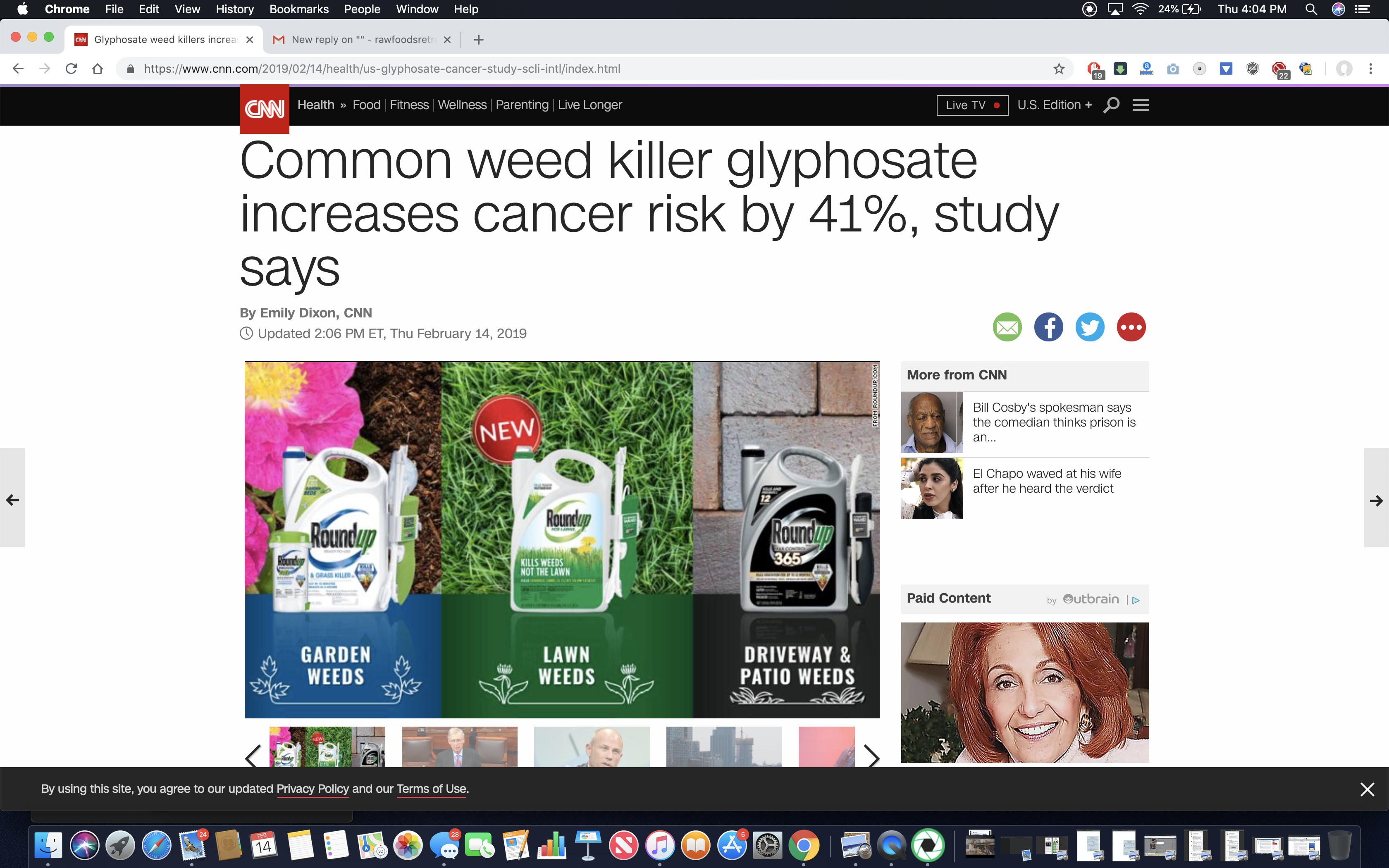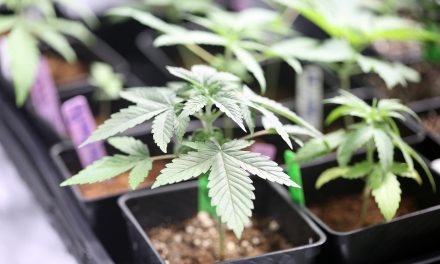A new analysis from researchers from the University of Washington has found what many have been saying for years: glyphosate raises the cancer risk of those exposed to it by 41%. The team evaluated existing studies into the chemical and concluded that it significantly increases the risk of non-Hodgkin lymphoma (NHL), a cancer of the immune system.
RELATED STORY:
This is huge news and is expected to impact the thousands of trials currently pending against Monsanto’s most infamous poison.
RELATED STORY:
The authors wrote in their study published in the journal Mutation Research, “All of the meta-analyses conducted to date, including our own, consistently report the same key finding: exposure to GBHs (glyphosate-based herbicides) are associated with an increased risk of NHL.”1 (A fact the EPA has continuously ignored.)
“The authors of the University of Washington report analyzed all published studies on the impact of glyphosate on humans. Co-author and doctoral student Rachel Shaffer said in a statement: ‘This research provides the most up-to-date analysis of glyphosate and its link with Non-Hodgkin Lymphoma, incorporating a 2018 study of more than 54,000 people who work as licensed pesticide applicators.’ The scientists also assessed studies on animals.
Focusing on data relating to people with the ‘highest exposure’ to the herbicide, the researchers concluded that a ‘compelling link’ exists between glyphosate exposure and a greater risk of developing non-Hodgkin lymphoma. Senior author Lianne Sheppard, professor in biostatistics and environmental and occupational health sciences, said she was ‘convinced’ of the carcinogenic properties of the chemical.”1
Bayer called the new analysis a “statistical manipulation”1 with “serious methodological flaws,”1 which should come as no surprise to anyone since they have had nothing but heartache since acquiring Monsanto. They added that the study “provides no scientifically valid evidence that contradicts the conclusions of the extensive body of science demonstrating that glyphosate-based herbicides are not carcinogenic.”1
While the authors acknowledged that there was limited published data available to study, the studies they did evaluate “varied in the population groups they targeted: specifically, the glyphosate exposure levels of the participants differed between reports.”1 (Let’s be honest, baring ones done by the industry, they have all found glyphosate to be dangerous.) And, of the available studies, none addressed the impact of the”green burndown” farming method (where glyphosate herbicides are added to crops pre-harvest), which has probably increased since the method was first introduced in the mid-2000s.
RELATED STORY:
The report highlights the need for new, well-designed (and robust) studies at all levels of exposure. And quite frankly, that’s been needed for a long while. But it’s better late than never and we are celebrating this news.
SOURCE:












